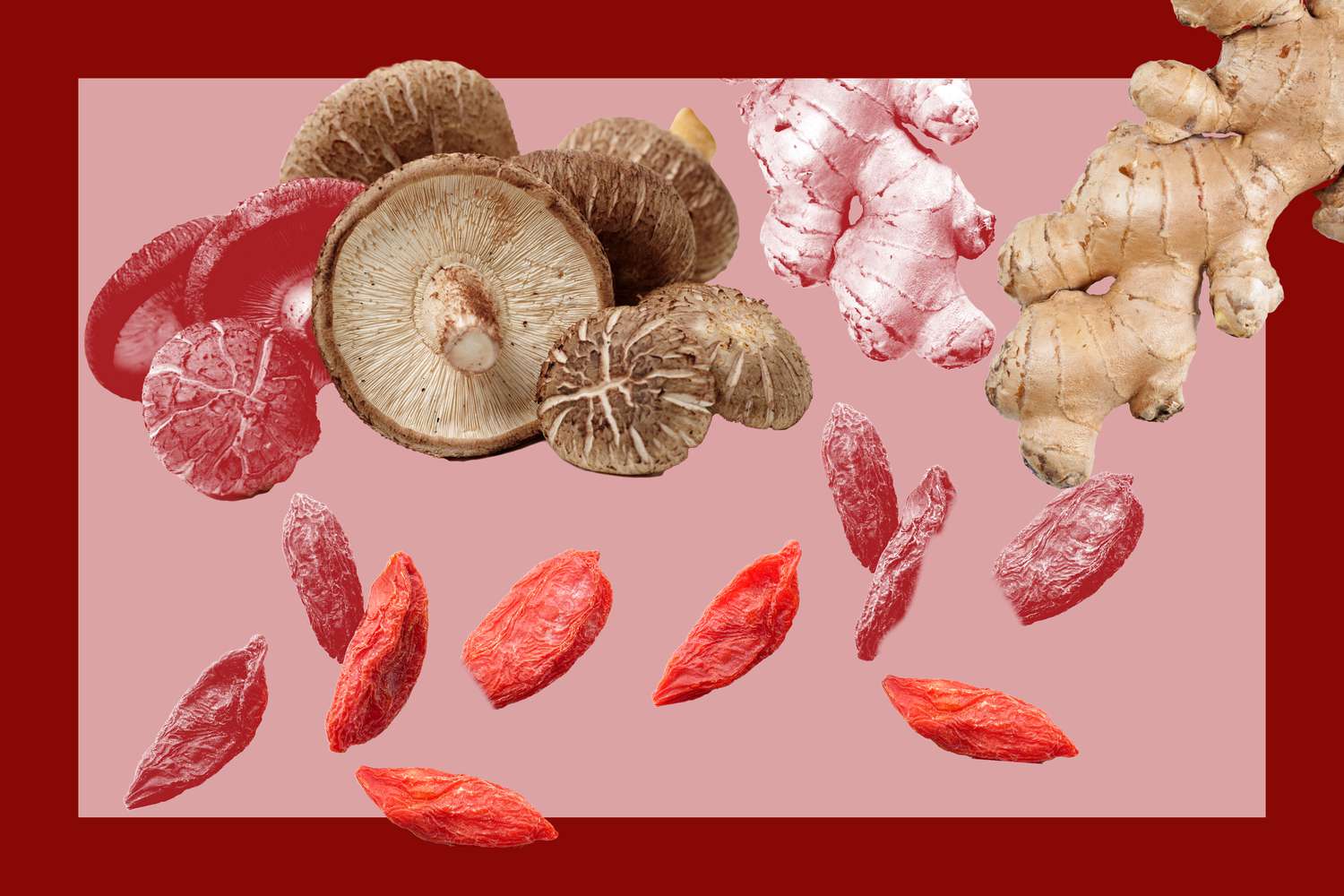
Why Are Adaptogens in So Many Drinks These Days, and What Do They Actually Do?
Key Points
- Adaptogens are herbs, roots, other plants, and fungi that help your body respond to and recover from stress. Examples of common adaptogens include ashwagandha, Rhodiola rosea, ginseng, maca, ginger, and licorice root.
- Multiple studies suggest that some adaptogens are proven to assist with the body’s response to stress, and can possibly aid with sleep issues and improve cognitive functioning.
- Adaptogens have historically been used in multiple herbal medical systems throughout the world, and have been offered as supplements in stores in recent years — now they’re often included in nonalcoholic beverages to make them more accessible.
Walk past the rows of refrigerated drinks in your usual supermarket, corner store, bodega, or artisanal grocer, and you’re bound to find much more than the usual offerings of seltzers and sodas.
There has never been a more bountiful array of canned nonalcoholic drinks available, and many of these are promoted as being quite different from their sugary soda counterparts. Instead, the new wave of pastel-colored and beautifully designed cans highlights the health-focused ingredients contained within each one, such as CBD, magnesium, prebiotics or probiotics, and perhaps most commonly: adaptogens.
I keep a few nonalcoholic drinks in my refrigerator regularly. I don’t love sweet drinks, and these tend to lean towards the tart, herbal, and bitter side, which is what I enjoy. However, for the vast majority of my favorites, including brands like De Soi, BRĒZ, and Recess, the packaging proudly proclaims that the beverage contains adaptogens or is adaptogen-rich.
I primarily drink these products for their flavor — I simply find them delicious — but many others turn to them in equal parts for taste and the potential health benefits of the ingredients they contain. I suspect that many consumers who enjoy these beverages, including those who purchase them for their health claims, share the same questions as I do, or at least some uncertainty, about what adaptogens are and whether they can genuinely benefit you.
What are adaptogens?
In simple terms, adaptogens are roots, herbs, other plants, and fungi that help your body cope with stress. Rachel Gargano, MS, RD, CSSD, CBS and the Chief Registered Dietitian at Live it Up, provides a more detailed explanation, telling Food & Wine “Adaptogens are plants thought to help the body better handle internal and external stressors, such as fatigue, anxiety, and even immune response.”
Both Gargano and the Cleveland Clinic note that an ingredient must meet three criteria to qualify as an adaptogen: First, it cannot harm you or be toxic when taken in normal doses. Second, it must assist your body in adapting to stress. Finally, an adaptogen must help your body return to its normal functioning (an equilibrium also called homeostasis) after you’ve experienced stress.
There are a lot of adaptogens out there, but some common examples include ashwagandha, ginseng, reishi, rhodiola, ginger, licorice root, and maca. Although drinks featuring these ingredients may be new to the beverage aisle in your grocery store, adaptogens have been available in the supplement sections of supermarkets and pharmacies for quite some time, and have been used in traditional medicine around the world for thousands of years, playing an essential role in medical systems such as Ayurveda, TCM (Traditional Chinese Medicine), and Sowa Rigpa (Tibetan medicine).
It is crucial to note that adaptogens are not regulated by the FDA. Therefore, if you’re looking for ingredients that are genuinely recognized as adaptogens and meet the criteria outlined above, it’s best to look for items you recognize and that are widely regarded and researched as adaptogens.
Do adaptogens actually work?
I have excellent news: Research suggests that adaptogens likely help with stress and can also aid related issues like difficulty sleeping or cognitive impairment.
The primary way adaptogens function is by influencing your hypothalamic-pituitary-adrenal (HPA) axis, a neuroendocrine system essential for helping your body cope with stress. The HPA axis releases hormones such as cortisol and adrenaline in times of distress, and adaptogens can aid in regulating its response.
Multiple studies have shown that adaptogens help the body manage and respond to stress. One review published in 2010 in the peer-reviewed journal Pharmaceuticals concludes that adaptogens may “reduce stress-induced impairments and disorders related to the function of stress (neuro-endocrine and immune) systems.”
Another analysis from 2021 published in the peer-reviewed journal Nutrients found that “natural adaptogens have the ability to increase the body’s resistance to stress changes caused by different types of stressors,” and that they could potentially help treat chronic fatigue and cognitive impairment as well.
More research is needed, but the science conducted thus far confirms that adaptogens can help you manage stress and possibly do even more. Regardless, Gargano emphasizes that “the first thing to keep in mind is that the term adaptogen refers to the entire plant and how it functions, rather than any specific chemical within that plant. The compounds within adaptogens often need to work synergistically to provide the benefits we see in studies.”
What kind of adaptogens should you start with?
Two of the most common adaptogens — ashwagandha and rhodiola rosea — also happen to have greater bodies of research supporting their effectiveness. Studies from 2021 and 2022 concluded that ashwagandha was effective in helping subjects manage or respond to stress. According to research from 2008, Rhodiola rosea may decrease the body’s cortisol response to stress and even enhance cognitive function when you’re tired.
These are just two examples of adaptogens that have been more closely researched, and it doesn’t imply that other ingredients are less effective. “Many adaptogens becoming popular today have been used for centuries as traditional medicine, including Panax ginseng, bacopa, reishi mushroom, astragalus, and eleuthero,” says Gargano. “While there is more work to be done to prove their safety and efficacy, it’s exciting to see research starting to underscore how these herbs can contribute to our health.”
How are beverage bands using adaptogens?
I reached out to one of my favorite nonalcoholic beverage brands, BRĒZ, to learn more about how and why it incorporates adaptogens into its products. To start, Founder and CEO Aaron Nosbisch explains that, “Consumers are increasingly seeking functional beverages that offer more than just refreshment — they want drinks that provide tangible wellness benefits.”
To see exactly which adaptogens are used in a drink, you’ll typically need to look at the ingredient list. Two of the most common ones listed are reishi and lion’s mane mushrooms. Some research suggests that reishi may aid your immune system. And Nosbisch notes that BRĒZ utilizes lion’s mane in its drinks because it “has been linked to enhanced memory, improved focus, and mood regulation. Research suggests it may also support nerve regeneration and overall brain health.
If you’re looking for advice on which adaptogens to try and whether they are suitable for you, consulting your healthcare provider is always the best option. However, if you’re simply browsing the beverage aisle, you can also rely on trial and error to discover which drinks make you feel your best.










